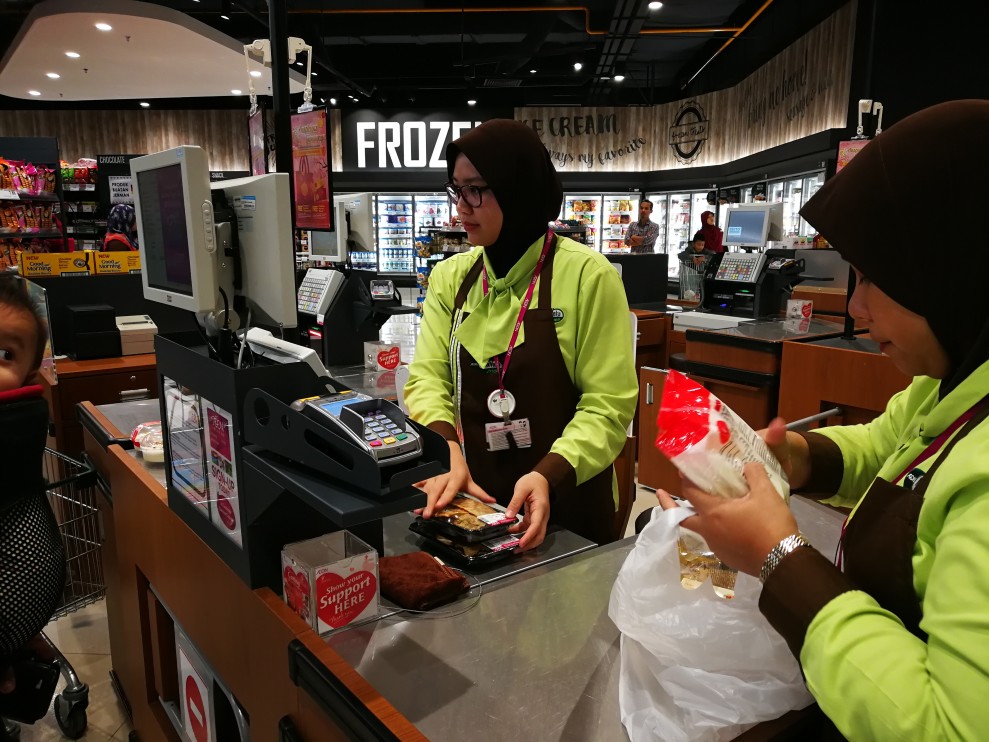
EU companies can now ban Hijabs. Religious neutrality or Islamophobia?
In July 2021, the European Court of Justice ruled that companies in the EU may ban Muslim employees from wearing a Hijab (a headscarf that does not cover the face) at work in the interest of upholding a “neutral image” towards customers or to prevent social disputes.
As a Hijab wearer myself, I find it hard to imagine instances where wearing a headscarf could create conflict, which wasn’t manifestations of hatred or discrimination already. The only case I can think of is when there is a misfortunate encounter with a bigoted individual, and even then, the conflict would be the fault of the bigot and not the Hijab wearer themselves. However, because customers are the ones spending their money in businesses, companies might use the ban to protect their feelings (as absurd as they may be) not realising in doing so, employee wellbeing (which is more important) is neglected. Staff treated in this way are therefore likely to become demotivated and quit, leading to the same outcome – collapsing business.
It’s important to realise that this issue affects us all – Muslim, female or otherwise. It’s not just the Hijab they are banning, but also “any other visible form of expression of political, philosophical or religious beliefs”. In my opinion, this is a slippery slope that could lead to banning freedom of expression entirely.
It’s clear to me that low priority is given to the rights of Muslim women. Instead of putting in rules to protect us and condemn the behaviours of bigots, European governments would rather further punish and marginalise Muslim women, while once again policing women’s bodies and our choice of clothing.
The fact that they think they are liberating women is absolutely ridiculous. Liberation is when you allow people to practice their beliefs free of fear or discrimination; when you encourage a tolerant society – not one fuelled by prejudice.
It feels like the same people who yesterday were saying Muslim women are oppressed, are now oppressing us – telling women what they can and can’t wear is the very thing Muslims have been accused of for decades! It is no surprise that the decision was met with claims that it would ‘fuel Islamophobia’. Though some may argue that the ruling is more about religious neutrality in services than any phobia, to me it is without question that the ruling is Islamophobic in and of itself and needs to be overruled immediately.
One shouldn't have to abandon or compromise their identity to secure a job. But that is exactly what is being asked of Muslim women with this most recent ruling. As the only minority (and the only obviously Muslim) employee in my three years in the corporate world, I myself have fallen victim to feeling the need to put my ‘Islamic’ identity in the backseat, in an attempt to accommodate those around me and ease their scepticism. It is both an exhausting and demanding act having to constantly defend our presence in a space that seems to oppose it.
It is only recently that I have realised that it is not our duty to make others feel comfortable or pander to their perceptions of us. Contrary to western belief, our Hijab is more than just headwear. It is an expression of our religious beliefs – our way of life, to put it simply. Requesting women to simply remove their Hijabs in the workplace is reductive of the meaning of the Hijab itself, not to mention utterly disgraceful! Hijab signifies confidence and if that confidence translates as a threat to you, then perhaps the problem was never the Hijab to begin with.
The workplace at the moment is not a representation of the society we live in today. Having laws that can be used to further impede the ability of people from already marginalised groups to enter into these spaces will only make matters worse. We cannot afford to miss out on the diversity of ideas, experiences, and perspectives every member of the society brings to the table. And that is exactly what will happen if we begin to make it harder for marginalised groups to gain access to certain spaces. Ultimately, true collective intelligence will cease to exist in such a state. And a society devoid of collective intelligence is a society I do not think any of us want to be a part of.
It is at times like this that I see the benefits of the UK leaving the EU – a system that has proved not a union at all. Though that doesn’t mean individuals like me are currently legally protected enough from the clear intolerance that exists in Britain, including in the workplace.
If you are wondering about the progress the UK has made regarding inclusion in the workplace, you only have to refer to the extract below from an article I wrote last year on navigating the corporate world as a first-generation Black Muslim woman.
“Still, when I enter a new environment, whether that be a training course, workshop, or client event, I find myself automatically scanning the room for anyone that even remotely resembles me. A subconscious practice I now recognise as seeking reassurance and validation to my presence in that space”.
This sentiment still holds just as much relevance today, if not more! Though these worries were fuelled by many factors such as race, class, sex, age etc, my Hijab has always been at the forefront due to how visibly dominant it is in such settings.
Ultimately, Hijab is tied to faith. And faith is a principle that cannot be governed by mere rulings, try as people might. I have no doubt that women who have the conviction to follow their faith in the face of challenges such as the EU ruling make great employees. They're tough, resilient and have grit that many others (including myself) can only envy.

About the author:
Sahra is passionate about increasing literacy in marginalized communities, which she achieves in her ongoing role in Healthcare Communications within the Pharmaceutical industry. Alongside this, she is also a 20/21 Aziz Foundation Scholar, studying an MSc in Drug Discovery & Pharma Management at UCL.
Her interests include literature, in which she explores culture and identity through her work. She is currently working on her first novel, a historical fiction set in East Africa in the 1970s. This sparked her current involvement in the Women Writers Project at Oxford House, whereby she is supporting the development of a Literature Festival to build and expand on Somali Arts projects.
You can follow Sahra on Twitter: @sahmoh_
This article is part of our Voices of the Economy series. The project brings together the economic experiences and opinions of people from a range of different backgrounds and showcases voices which are not heard as often when we talk about the economy. To find out more and share your own story click here.



